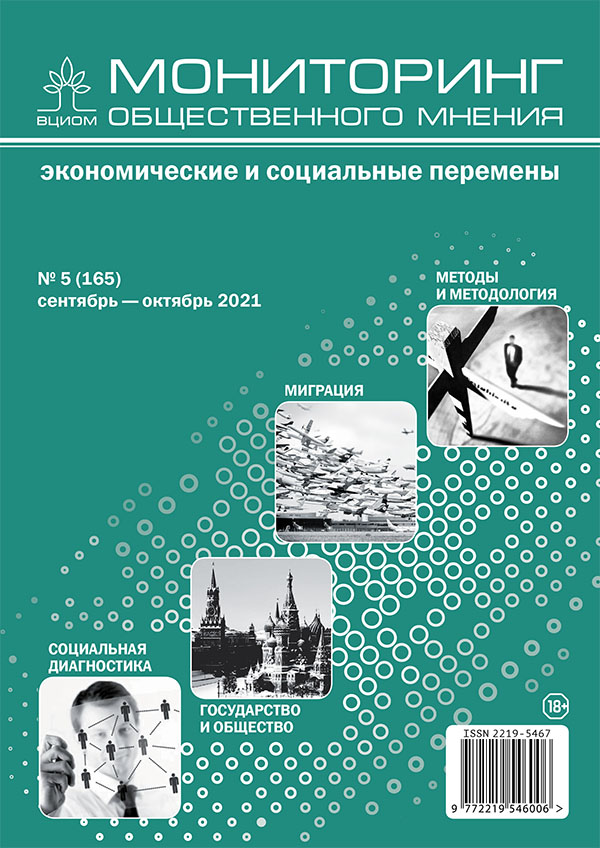Are Siloviki and Democracy Still Incompatible? An Analysis of the 2016 Survey of Russian Elites
DOI:
https://doi.org/10.14515/monitoring.2021.5.1867Keywords:
Russian elites, militocracy , quantitative methods , liberal democracy , studies of elitesAbstract
Do elites with a power background really share less liberal attitudes than civilian elites in Russia? This is an important question in the context of Vladimir Putin's personnel policy, focused on the employment of security officials, and the last systematic attempt to provide an answer dates back to 2009. Within the framework of this article, the authors investigate the orientations of respondents — representatives of the Russian elites — with respect to several central components of liberal democracy. The analysis is carried out on the basis of data from the seventh wave of the Survey of Russian Elites, which was conducted approximately every 4 years, starting in 1993. The results obtained show continuity with previously discovered patterns: current law enforcement officers are less inclined to support political pluralism and human rights than their retired colleagues, and members of the civilian elite with experience in the security forces are less liberal than those who have pursued an entirely civilian career. The implications for the future of the Russian political system are as follows: the more the practice of employment in the leading state positions of the security forces expands, the less the likelihood of a resumption of democratization processes in the future will be.
Acknowledgements. The authors are grateful to the Office of the Dean of Faculty at Hamilton College for its financial support of this article.
Downloads
Published
How to Cite
Issue
Section
License
Copyright (c) 2021 Monitoring of Public Opinion: Economic and Social Changes Journal (Public Opinion Monitoring) ISSN 2219-5467

This work is licensed under a Creative Commons Attribution-NonCommercial-ShareAlike 4.0 International License.






